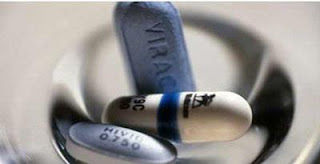HIV drug consumption but also can reduce the risk of recurrence of malaria, and so the results of the latest research published in the New England Journal of Medicine, based on treatment outcomes in children HIV who also is undergoing treatment of malaria.
Research started by the U.S.. National Institute of Child Health and Human Development involves more than 170 HIV infants and children up to six years in Uganda who received antimalarial drugs and HIV treatment. With live two treatment at the same time, created a positive combination of protease inhibitor lopinavir and ritonavir as a kind of drug for HIV with a class of drugs called non-nucleoside reverse transcriptase inhibitor (NNRTI) as a malaria medication. A combination of both is better in treating malaria.
Research shows risk of developing malaria in HIV treatment six months fixed him over 40 percent although it has been using drugs for malaria and other precautionary measures such as the use of mosquito nets. The risk of getting malaria in the first six months are also the same, both in children who use NNRTI or a protease inhibitor.
However, in children of tela have the malaria, HIV drug use makes the risks of malaria relapse be relatively reduced. Malaria is a disease that can attack the body when durability is weak.
According to research data, the risk of malaria for relapse for a person who consumes as much as
41 percent is a NNRTI in the passed 28 days, whereas for those taking protease inhibitors only reached 14 percent.
Whereas after 63 days, the risk of recurrence of malaria reached 54 percent for children NNRTI, while taking a protease inhibitor for consuming only 28 percent. The researchers stated, the levels of malaria drugs in the blood of children taking protease inhibitors are higher than those who only consume NNRTI.
"It is possible that protease inhibitors prevent the affects of anti-malarial drugs are stalled or have some other additive affect against the malarial parasite," said Dr. Lynne Mofenson's Director of special AIDS Treatment for children, adolescents and pregnant women at the NICHD.
"Laboratory studies also show that protease inhibitors can block malaria parasites directly. We are still figuring out the effectiveness of the combination of these drugs, "he added.





{ 0 komentar... Views All / Send Comment! }
Posting Komentar